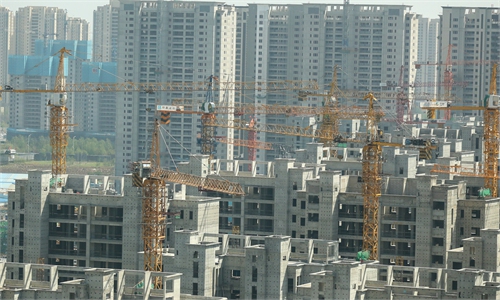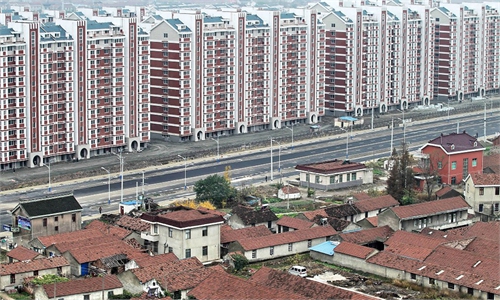
A residential community Photo: VCG
More than 30 Chinese cities have announced policies to support home purchases by families with two or three children, including relaxing purchase restrictions, increasing loan amounts of housing provident funds and providing subsidies for home purchases.
Experts said that recent initiatives can further reduce the capital cost and protect the interests of families with two or more children buying homes, as well as activate real estate market demand.
On Monday, Hangzhou in East China's Zhejiang Province announced that when a three-child family in the city buys its first house and applies for a housing provident fund loan for the first time, the loan amount can be increased by 20 percent.
China's housing provident fund is a long-term savings plan established in the 1990s, made up of compulsory monthly contributions by both employers and employees. Loans by the fund offer lower interest rates than commercial bank loans.
"The move will reduce the cost of down payments, resulting in reduced financial pressure on home purchases and making home buyers more motivated," Yan Yuejin, research director at Shanghai-based E-house China R&D Institute, told the Global Times on Tuesday.
More than 30 cities have issued similar policies benefit those families with two or three children.
On Sunday, Cangzhou in North China's Hebei Province introduced preferential policies to increase the amount of housing provident fund loans for multi-child families. The maximum loan amount for a two-child family increased by 100,000 yuan ($14,790), and that for a three-child family by 200,000 yuan.
On July 22, Changsha in Central China's Hunan Province announced that the maximum amount of housing provident fund loans for families with three children was increased to 800,000 yuan.
Yan noted that most of the cities announcing such policies are second-tier cities, as the second-tier cities have motivation to focus on multi-child families to stimulate local property sales.
"Hangzhou's action has a good demonstration effect, combining the national fertility policy and housing improvement policy, and it is also worth learning by other Chinese cities," Yan added.
Global Times



